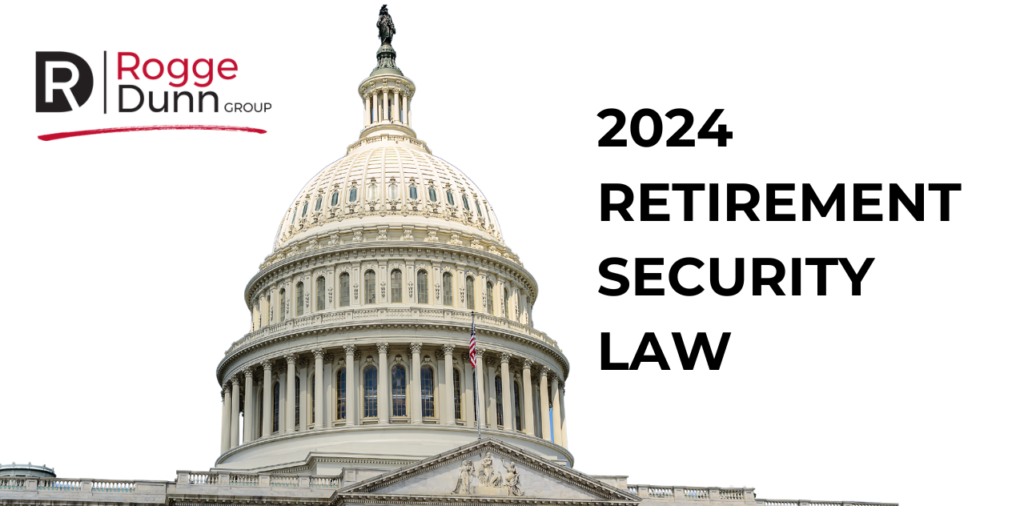The U.S. Department of Labor (DOL) promulgated the “Retirement Security Rule.” Its goal is to protect workers who are diligently saving for retirement. This new Fiduciary Rule broadens the definition of “fiduciary” in the context of retirement investment advice. The Retirement Security Rule takes effect on September 23, 2024.
Specifically, the Retirement Security Rule updates the almost 50-year-old definition of “investment advice fiduciary” under the Employee Retirement Income Security Act (“ERISA”) and the Internal Revenue Code. Any person who gives retirement investment advice or works with retirement savings options, such as 401(k) plans, IRAs, annuities, and other investments, is considered a “fiduciary” who must follow strict fiduciary requirements. A fiduciary must put the best interests of their clients above their own, give prudent advice, avoid misleading statements about conflicts of interest, fees, and investments, charge no more than what is reasonable for their services, and give the investor basic information regarding the advisor’s conflicts of interest.
The Retirement Security Rule is not the first attempt in recent years to expand advisors’ duties. In 2016, the DOL issued a similar rule during President Obama’s administration; and President Trump did likewise in 2020. However, a federal court voided Obama’s Fiduciary Rule. Many financial advisor law attorneys counseling financial advisors think the Retirement Security Rule will be vacated for the same reasons. Other financial industry attorneys believe the new rule is narrower and will be upheld by the courts. Given the U.S. Supreme Court’s June 2024 ruling that courts should no longer defer to the rule making promulgated by government agencies, a court may strike down the new rule.
The Retirement Security Rule focuses on investment advice given to employees and retirees who have assets in 401(k) plans and desire to roll those funds into IRAs, annuities, and other investments. When an employee changes jobs or retires, the Retirement Security Rule classifies more investment advisors as “fiduciaries” when they advise on retirement savings, particularly in the context of rollover recommendations.
The goal of the Retirement Security Rule is to ensure that consumers investing for their retirement receive unbiased advice based on clear, accurate, and truthful information that is in the investor’s best interest. The new rule also protects investors who purchase high-cost investment or insurance products recommended simply because they result in higher commissions to the advisor. Notably, the new rule covers advice given on a “one-time” basis–which has historically not been treated as fiduciary advice.
While the Retirement Security Rule is meant to substantially benefit retirement investors, that might not always be the case. For example, advisor fees will likely increase to address the greater risk of fiduciary liability and litigation, and investors might not have as much access to certain services and products. That being said, heightened regulation should not hurt any financial advisor who is already putting their clients’ needs first.
Our financial advisor attorneys are well-equipped to help financial advisors, relationship managers, and investors navigate the issues involving the new Retirement Security Rule. If you have questions about this new regulation, contact one of our financial advisor lawyers today.
